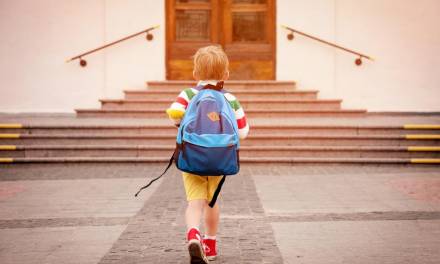The issue of sexual abuse and harassment within schools has become an increasingly concerning matter in today’s society. Effective education and staff training can be crucial in reducing the number of incidents that occur within schools.
Sexual abuse and harassment within schools can be categorised as either:
• Non-contact sexual abuse
• Rape
• Assault by penetration
Abuse within schools has become increasingly common as abuse seems to have become normalised. The severity of the situation cannot be taken for granted.
“A Department for Education report in 2017 found a third of girls had been sexually harassed at mixed-sex schools”
A recent review is now underway after the Secretary of State requested Ofsted to investigate sexual abuse across state and independent schools and colleges. The review is to conclude in May 2021.
Many pupils decide not to disclose the abuse they receive in fear of the consequences. These can include feeling embarrassed about the situation or thinking nobody would believe them.
“For all three types of sexual abuse, ‘embarrassment’ was the most commonly reported reason for not disclosing at the time (53% to 58%).”
The curriculum for Relationships, Sex and Health Education (RSHE) became mandatory from September 2020 signifying that a need for change is recognised.
If schools were to educate everyone – including teachers, support staff, general workers and students – on how harmful sexual abuse can be, then it could help reduce the number incidents of sexual abuse in schools.
Schools have a safeguarding responsibility
Safeguarding policies in schools are in place to allow students to enjoy their time at school and not have a fear of attending. But are they being enforced appropriately?
“Over half (64%) of secondary school teachers are unsure or not aware of the existence of any policies and practices in their school related to preventing sexism.”
If teachers and schools aren’t properly informed of safeguarding procedures then how will they know how to deal with issues regarding sexism and sexual abuse?
Young children receive abuse within a school setting when they should feel most safe. A recent report into sexual abuse on the accounts of 691 victims and survivors reported that:
“42% of people who were sexually abused in the context of schools were aware of other victims in the same school.”
Abuse in schools needs to be addressed as it can affect lives both physically and mentally. Education can assist in delivering content that can enable institutions to tackle the issue. Some examples of lessons or courses include:
- Making sense of relationships (KS2-4)
- Harmful sexual behaviour in schools training
- PANTS resources for schools and teachers (a simple way to talk to primary school children about staying safe from sexual abuse.)
Sexual abuse – mental and physical trauma for victims
Sexual abuse can lead to devastating effects on emotional well-being and mental health that can last a lifetime. An Independent Inquiry into Child Sexual Abuse (2017) found that:
“The most common issues reported were depression (33%), lack of trust in authority (32%), thoughts of suicide (28%), anxiety (28%), self-harming (22%) and attempted suicide (22%).”
The mental impact of sexual abuse can be severely traumatic, this is why educating staff and students about the effects of sexual abuse can be vital.
The physical effects on a victim are just as worrying. Sustained injuries include internal damage and also sexually transmitted diseases.
Long term physical effects can range from multiple illnesses and disabilities, such as hypertension, chronic fatigue, malnutrition, mobility, to problems with reproductive systems and childbirth.
The amount of abuse that is recorded only highlights a deeper issue. Many suppress and hide their abuse in fear of the possible outcomes that could follow.
“The website Everyone’s Invited has recorded 8,000 testimonies of sexual abuse from pupils.”
These testimonies demonstrate how crucial education is in dealing with this issue. Pupils should not have to deal with abuse on their own or have to conceal it for fear of possible consequences.
Safeguarding is a core component of EDClass
Safeguarding is paramount for us. Every activity on EDClass is tracked and recorded. Students and teachers are monitored constantly to provide a safe and secure learning environment for all.
Students and children can access a safe space in EDClass, and raise an alert for our support staff if they ever feel threatened in their learning environment.
We believe every child should feel safe to learn without any fear of being sexually abused.
Contact us for more information on how we can help you deliver a safe learning environment for your pupils.










